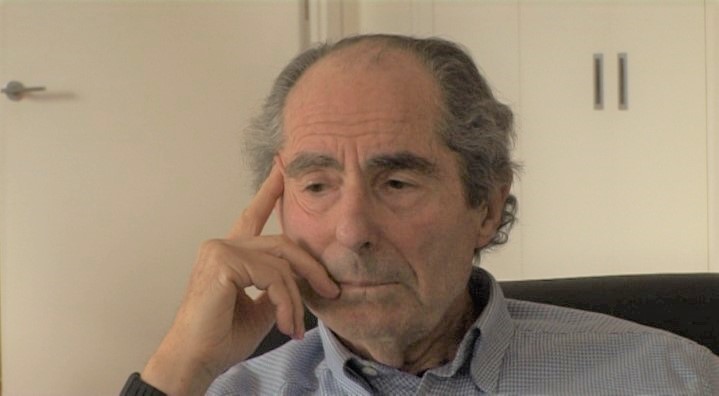NEXT STORY

Hiroshima, and the end of the war
RELATED STORIES

NEXT STORY

Hiroshima, and the end of the war
RELATED STORIES


|
Views | Duration | |
|---|---|---|---|
| 81. Portnoy's Complaint: were you ashamed of it? | 417 | 01:00 | |
| 82. 'What could outlandishness do for me?' | 278 | 01:44 | |
| 83. The Holocaust | 460 | 02:55 | |
| 84. A man named Gans | 271 | 01:52 | |
| 85. My rejected play about Gans | 266 | 01:58 | |
| 86. Further education: the trial of Ivan the Terrible | 299 | 02:20 | |
| 87. Primo Levi and other survivors | 867 | 03:56 | |
| 88. Hiroshima, and the end of the war | 361 | 03:19 | |
| 89. Vietnam | 356 | 03:43 | |
| 90. The manuscript about the girl who blew up a building | 351 | 02:17 |


Primo continued my education, he and I became friends for a brief time after I had a conversation with him in Turin on the publication of one of his books and that conversation appears in my book Shop Talk. And education didn't come from Primo directly, it came from reading his books, and they're... they're positively brilliant I think. The first book, which was called – in English, here in America – Survival In Auschwitz, which was called in Italian If This Be A Man. And the second book – I forget what it's called here in America – but it's called The Truce... The Truce in Italian, about his journey home to... to Turin from Auschwitz. And there is no chronicler more valuable than Primo and it's a... it's a masterpiece for ten different reasons. Just to have the moral poise that he has in reconstructing his days there in Auschwitz. And then he exceeds that even, in his book called The Drowned and the Saved, which is really a... a reflection, a meditation, on Auschwitz. Whereas the first book Survival in Auschwitz is a record of his... of his time there.
I have other... friends who are survivors. I can think of two others right now, both of whom I did… both of whom appear also in my book Shop Talk and I'm sure I was drawn to talk to them and converse with them and write about them, because they had this experience. One is Aharon Appelfeld – the Israeli writer – and I did a long conversation with him in Shop Talk, and Aharon had been in the camps as a boy... as a child, a boy of eight or nine. And his story is hair raising because when he got to the camp his parents were taken away and they were immediately incinerated, and then Aharon found a hole in the fence and... and escaped. I think he's nine years old, escaped from the camp and lived out the war in the woods, in peasant villages and so on. Hair raising story. He's... he's written it several times over in... in several of his novels. And Aharon is a close friend and I see him whenever I... whenever I go to Israel, when he comes here I see him and we're very close.
The other friend is a Czech Jew named Ivan Klíma, and Ivan too as a boy went to Theresienstadt which was the camp where the Czech Jews went on the... on the way to Auschwitz, you know. Kafka's sisters were in Theresienstadt on the way to Auschwitz. Fortunately for Ivan he... he didn't get passed on to Auschwitz, but he grew up in the... in the camps… camp. So I've been drawn to these men because they have experienced what they've experienced, and also because all three of them are... are wonderful writers, you know.
[Q] And do you have anything to say about it now? I mean, about the Holocaust?
Not really, no.
The fame of the American writer Philip Roth (1933-2018) rested on the frank explorations of Jewish-American life he portrayed in his novels. There is a strong autobiographical element in much of what he wrote, alongside social commentary and political satire. Despite often polarising critics with his frequently explicit accounts of his male protagonists' sexual doings, Roth received a great many prestigious literary awards which include a Pulitzer Prize for fiction in 1997, and the 4th Man Booker International Prize in 2011.
Title: Primo Levi and other survivors
Listeners: Christopher Sykes
Christopher Sykes is an independent documentary producer who has made a number of films about science and scientists for BBC TV, Channel Four, and PBS.
Tags: Turin, Shop Talk, Survival In Auschwitz, If This Be A Man, The Truce, America, The Drowned and the Saved, Theresienstadt, Primo Levi, Aharon Appelfeld, Ivan Klíma
Duration: 3 minutes, 56 seconds
Date story recorded: March 2011
Date story went live: 18 March 2013